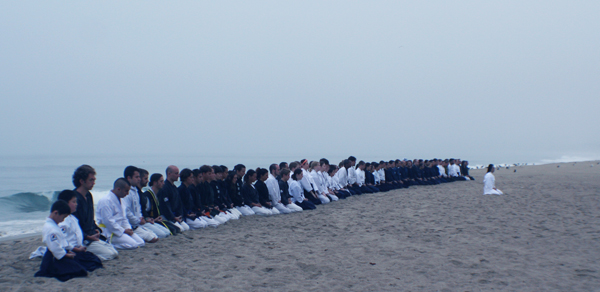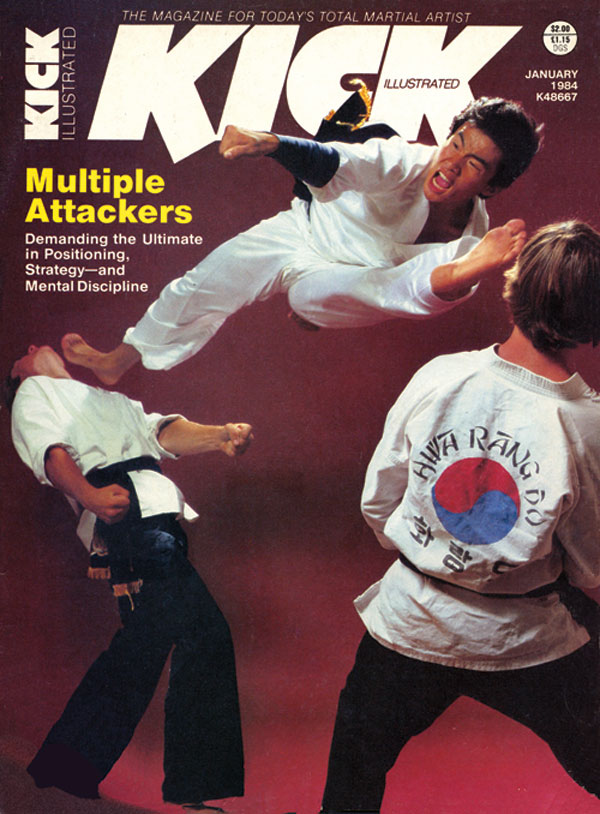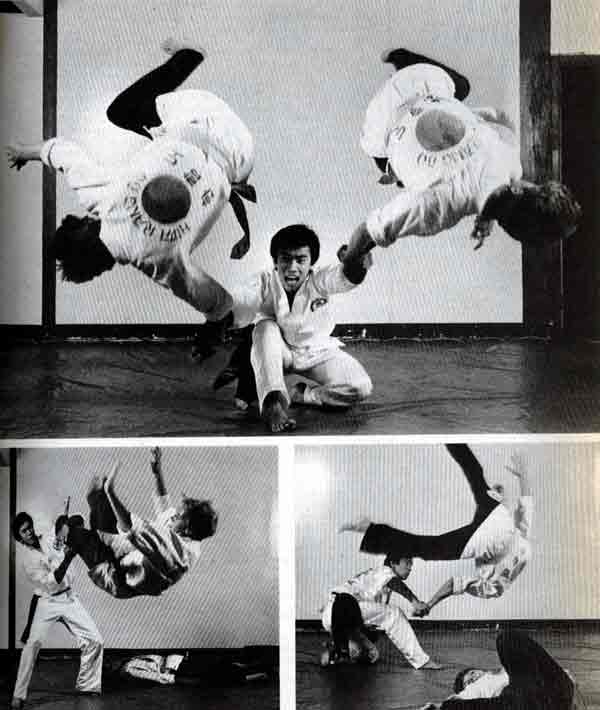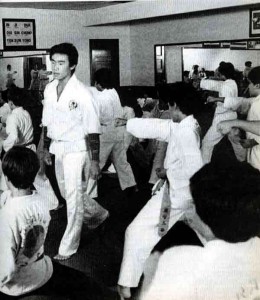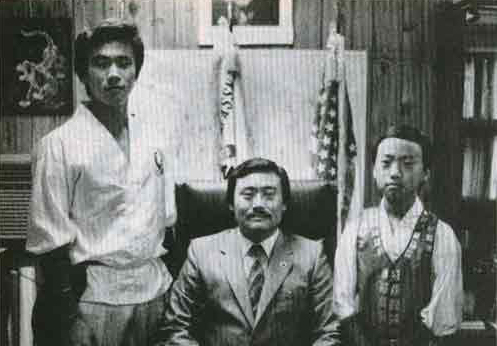Sigh…
Oh how time has flown. It has already been 17 years since I first opened this school and with the help of my loyal pupil converted it from a tattered, left for dead Tae Kwon Do school, to a beautiful majestic space where my students and family can call it their second home. It has also been a long time since I actually had written a speech. However, this year, I feel compelled to write everything down as I don’t want to forget anything. I am definitely not a young pup anymore and sometimes my memory fails me.
There have been literally thousands of students who have passed through those doors and honored me with the opportunity to mold, teach, and yes sometimes, maybe often scold and discipline. There have been also, many parents who I have had the fortunate opportunity, actually some more than others, to meet, advice, and council. I have witnessed children wetting the matt floor to women stomping out of class in an emotional melt down. I have heard excuses ranging from “my dog ate my sash” to “I am an actor and the discipline here is stifling my creativity.” I have parents who have praised me with boundless love and support to parents who have resented me as their children obey me more than them. I have parents who have told me that they will move wherever I go as their child needs me to blaming me for spanking, later to find out that the child injured himself playing on the monkey bars. I have received gifts ranging from a sweatshirt that reads “I yell because I care” to a new oven to fuel my new hobby of cooking. I have enjoyed many triumphs and countless moments of joy and excitement, but most of all I have endured many heartbreaks and disappointments.
Beginning of this year, I was forced to readdress the aching question that has always lingered, ready to reveal itself in grand fashion in the deep recesses of my mind, but suppressed: first, when my bible studies teacher told me to “shut up” for asking too many questions when I was in my early teens; then later in college when I pursued philosophy and realized that it only sparked more questions than answers. So, I decided to live life and stop asking: Stop asking the existence of god, what is truth and what makes it true, what is the purpose of mankind, where did we come from, and if there was a god, then where did god come from, etc, etc…
I have resolved within myself that the only way to know the truth is to live life and experience as much as I can with a vigilant yet open mind, unafraid to be hurt, disappointed or disillusioned. I have traveled and done much throughout my life, gaining as much knowledge as I can soak up about people and their nature. Finally I decided to take root by opening this school in West LA. The last 17 years was challenging to say the least, but we have always found a way to persevere.
During the early part of this year, there were some eye-opening experiences that I am not going to get into for the moment, but lets just say that the desire to know the truth became more immediate than ever and it consumed my entire being. It shook my foundation and made me ask: how come we are in this global financial crisis where the dollar is worth nothing and the disparity of wealth is ever-increasing; how we have all globally agreed in this scam of using monopoly money; how come people are starving all over the world and we are facing a food crisis; why are we facing the shortage of oil with no replacement in sight; why if there have been so much more advances in technology that we could not find solutions to these problems; why with so many more institutions of higher learning, so many more college graduates, and professors that we cannot seem to resolve the core issues that affect the our continued survival; why are there more wars than ever before; and could we all be some lab experiment of a multi-dimensional being?
We are living in the information age and although it has helped us to live seemingly better lives, there are so much misinformation as well and it’s a monumental task to try to decipher what’s fact from fiction, what’s real from fantasy. I was scared for the first time in my life as my perceptions, my beliefs were tested and there was a brief moment where life became overwhelming, became meaningless and I lost my purpose. And, for me purpose is more important than food, without it I cannot continue to live. After many mornings of meditation and sleepless nights of reflection, I rose once more from what felt like was my burial. And once again it was Hwa Rang Do that has empowered me.
All the creed, all of our goals were more relevant and necessary than ever before. All the things that I have been preaching became imminent and I was called to take action. There’s no tomorrow, only today and what we do today dictates our future. I became more motivated and inspired to fulfill our goals of empowering the world one person at a time.
In a world where it seems that the public is consumed with consumption, not to the fault of their own, but all you have to do is look around you. The corporations are becoming multi-national conglomerates with deep pockets in DC with endless resources to make sure that they sustain their greed for money and power. There are so many ways that they can influence and infiltrate into our lives to create dependencies through fear and hedonism.
It’s all about the bottom line, it’s all about feeling good, it’s all about having the most toys before you die. The martial art industry is like all other industries with the same goals. The goal is to make the customers happy so you can increase retention and repeat business. Don’t give negative criticism, constructive or not. Diminish any activity that would give them a negative experience. Dumb everything down so that it’s easy to do and easy to learn. Make everything fun and enjoyable. Don’t get too involved with the student’s personal life. And definitely no knuckle pushups!
And, yes this is where I have failed as a martial arts entrepreneur. My goal has never been to make the students happy, my goal has always been to offer them strength to realize and love their true self by stripping away their ego, which only serves to comfort them with lies of self grandeur for self-preservation. My students were never my customers, they were students who needed to be taught what they lacked and needed. I have always believed in the balance of both positive and negative reinforcement, and as they got stronger and moved from Tae Soo Do to Hwa Rang Do, the negative reinforcement would prevail. The underlying message of only using positive reinforcement is that you can’t do anything; the underlying message of negative reinforcement is that you should know. What are we training them for? What is the real world like? Who needs training to deal with good experiences? We need training to deal with the bad, negative, painful experiences. So, how can our students learn to deal with the hardships and disappointments of life if they were never exposed to it and never had practice dealing with criticism, disappointments, and conflicts, which are predominant in the real world. This can also be seen in our educational system where in elementary schools, they do not even play games life musical chairs by saying “why should 1 kid win and 30 lose.” All we are doing by this is creating more bait for the sharks. And, I have no interest in raising my students as someone’s lunch.
Oh, don’t even get me started on drugging our children. You know how I feel about that.
No, I do not dumb things down by speaking in terms that children understand in gaga googoo language, but I expect them to learn Korean terminologies as their capacity for languages are best when they are young and it helps to stimulate their brain activity. No I do not demean the seriousness of martial training by making everything into a game that kids can play. How can we make martial training a game where one learns to hurt, injure, maim other people? How is that for fun? We must not delude the serious intent of our training, but rather use it to heighten their awareness and have them pay respect and reverence to what they are doing so that they are careful not to error. They must learn also to do things that are not so fun. Maturity is learning to do the things that you do not like, but in order to get ahead, you must do these compulsory tasks of our lives very well. We must first teach them what they need and then give them what they want. And, they must learn the self-discipline to do the things that they do not enjoy but are necessary.
I know all my students personally and by the time they have reached their Tae Soo Do Black Belt, I know them very well in all aspects of their lives. What is the satisfaction to teach a person how to throw a kick, a punch, to hurt another human being? The satisfaction comes from knowing that you have trained them to be self-disciplined to control themselves mentally, physically, and emotionally to present themselves in the best light possible to others and to extend themselves selflessly to help those in need. A good teacher tells a student what they should do and fix their mistakes when they occur; a great teacher shows the students what they should do and fixes the source of their mistakes so they never occur again.
In this era of uncertainty, which I thought would not happen in my lifetime, but maybe for the future generation, I too looked towards self-preservation and wanted to survive. I became selfish and tried to find ways to secure a better future. Should I make the curriculum easier; should I lower my expectations; should I not be so strict; should I get rid of the knuckle pushups; should I discipline less; should I, should I. For sure, I would be liked by more people, have more friends, less headaches and invited to more baby showers. Of course, there’s nothing wrong with that, but I was focused on me and if I saved myself, that’s only one life. Where is the nobility in that? No, I must commit to teaching better, harder, and more to as many people as I can. In that way I may help many to live better. This is what fear does to you. It makes you egocentric, egotistical, selfish, entitled and myopic. Only truly strong and fearless people can be selfless and devote their lives to a higher cause.
This week I attended a high school graduation of one of my Hwa Rang Do Black Sashes, She’s the only teenage female Black Sash that I have taught besides my sisters in the over 33 years I have been teaching. She graduated with honors from Elycee Francais and is accepted to UC Berkeley. As I was walking into the school, I saw some familiar faces and in particular a grandmother of two kids who were formerly my students. I have not seen them in many years as the girl stopped training after receiving her TSD Black Belt, but she is my girl’s best friend and her brother, who also trained when he was 6 or 7 was unrecognizable. He was 6’5”, at only 15 years old and already being recruited by colleges for basketball. I remember him being quite a handful as a little tiger. The grandmother walked over to me and was delighted to see me. She held my hand and said, “Thank you so much for all that you do for the kids.” I have not seen her in 7, 8 years and she left me speechless and as I was fumbling for words like, “ah it was nothing or was it I didn’t do anything.” Before I can say anything, she gave me a big hug and that meant everything to me.
Sitting there in the auditorium as I am trying to see where my girl was in the parade of incoming graduates, I realized that I could not find her. I could not see the cute 4 year old in ponytails. When I finally made her out, she was a beautiful young woman, tall, proud, and with make up and heels. Wow! It’s been 14 years already. And of course we never think of how old we are getting.
As I sat through the speeches from the president and the school faculty, I was reminded that I am not an island, that I am not alone. And you can’t imagine how refreshing that is for me. As the president spoke, what remains in my mind are these two statements; “we do not give compliments easily. They must be earned.” And “we have high standards for our students.” Awesome! I am thinking to myself as I nod in agreement. As she receives her diploma and her awards, I was filled with great joy and satisfaction. And it dawned on me, she was not my girl, not my daughter, but she might as well be. Although she was not my own, it would be the closest I would come to feeling the joy of raising a child.
As I watched her mingle with her friends, taking pictures, and congratulating each other, I was admiring how beautiful she was, how feminine, how delicate, then for a moment I thought to myself, “Oh I should have been easier on her” and that quickly changed to “No, and then, do these people realize that underneath that cover of beauty and femininity, lies a fierce warrior who can seriously kick some ass.” And that thought brought a comforting, satisfied grin across my face. I was genuinely proud of her and I guess I was gloating a little in hoping that my teachings took some part in helping her to be how she is today. However, the true testament of her success lies with the mother, Christina. There were many moments when Andrea, oh did I mention who this girl was, yes it’s Andrea Perez-Bertolotto.
As I was saying, there were many moments when Andrea wanted to quit Hwa Rang Do, especially when all her friends quit. To give you a perspective: in Tae Soo Do they average a belt test every 3 to 4 months, for Hwa Rang Do it takes a year to 1 1/2 and has ten times more the curriculum than Tae Soo Do. So it would take an additional 6 to 10 years to reach Black Sash. These were critical times in their early adolescence with so many distractions, so many new experiences and possibilities. However, Christina did not give her daughter the option of quitting, even after many arguments with her husband, who is in fact a Hwa Rang Do blue sash himself and should have known better, LOL!
And, let me tell you, and all my students know, I was definitely not easy on her even through those awkward years where her body is growing faster than she can handle. We live by the idea of “not looking for exceptions, but to be exceptional!” And that was my aim. I am sure there were many moments she cried herself to sleep and wanted it all to stop. Things did not get easier as she had to prepare for her black sash examination. To review hundreds if not thousands of techniques, moves, forms, fighting, weaponry, then perform them in front of an intimidating board of judges compromised of Dojoonim (our founder) and his high ranking masters, a 15 page minimum dissertation, 2 poems, 2 hour written exam with a mean score of 50 out of 100, power break though concrete slabs, and doing this with a demanding college prep work at school, not to mention that she is the only or one of a very few women in class, having to spar, grapple, and weapon fight 20 to 30 other male adults throughout most of her teen life. To say the least she did excellent and seemed to have breezed through it. I think I was more nervous than she was. I know I was more nervous.
Finally, I saw her prepare for her college entrance exams, interviews and the application process. She could have on any of these occasions asked to take a break, stop training; many have, for far less as breaking of a fingernail. But, she did not. She managed and juggled through all her responsibilities here, her school and family, never complaining, never losing her poise, her character. And neither did her mother.
Usually, by that age, I rarely deal with the parents and it’s even more rare that I receive any credit or compliment from them. I was delighted to have had a chance to chat with the mother, Christina, and I was truly moved that she gives me so much credit to Andrea’s successes. And it moved me even more when she continued to tell me that Andrea measures all her school teachers against me and complains why they are not like Master Lee. I must say this was big surprise! She went on to say that Andrea’s school teachers tell her that Andrea is a very special girl, especially when she’s able to bring a rowdy, loud, unruly class to attention by just standing, turn and give a deadly stare with the intensity partly of Grandmaster Lee and partly Andrea. The entire class comes to a silent attention. Yes, this is why I do what I do, talking to myself. Yes, this is what I must do. It had uplifted my spirits and I have regained my purpose.
There are countless other stories of my student’s successes and how their dedication and commitment inspires me. But, I will leave you with one more.
I have another student who started when he was 12, 13. He received his TSD Black Belt, graduated from Winward High, did his undergraduate work at Harvard, then got accepted into one of the most demanding MBA programs in the country at UC Berkeley, graduating with a second masters in Public Health. He had committed to me that he would change the healthcare system in this country for the better. He got recruited by McKensey & Company, the world’s leading management consulting firm, first working in Brussels and currently he resides and works in New York City. He is now a Hwa Rang Do 1st Dan Black Sash and one of my most loyal pupil, William Wright.
I received a disturbing call couple of weeks ago. It was unexpected and I thought it was about converting our organization to a non-profit, which he is heading. But, it was not. He started to mumble in a feeble voice, which I barely understood. So, I shouted, “What is it? Speak up!” and in my grand self I added “are you man or mouse.” I have never heard him speak this way. He was always so confidant, self-assured, and always positive.
He replied, “How do you do it sir?”
I said, “Do what?”
“How do you do it? How do you day in / day out, stick to your beliefs? How do you…
I stopped him. I did not need to hear more. He was growing up. His innocence is challenged and perceived by others as being naive. He is disillusioned on how his colleagues, supposedly with high intellect from the finest educational institutions in the world, perform their jobs with such inefficiencies, waste and without ethics. And, how his bosses stifle his ability rather than challenging him to outperform. He is lonely, his friendships were not as deep and meaningful; they are superficial at best. It broke my heart to hear him sound defeated.
As I have said many times, “Teaching is Parenting and parenting is teaching.” And that our parenting never stops. At first, it made me sad, that my child, my student was in pain. I wished it was me in his shoes instead, but that was quickly overruled by my desire to offer him strength and empower him.
During Andrea’s graduation they had a keynote speaker who was nice and made some good points, but to tell you the truth, it left me confused. To summarize I think he delivered a message that goes something like this – strive for your dreams and when you can’t achieve them, don’t’ worry because you’re better off for trying and that it’s ok to be a flea as many fleas can do big things.
So this speech is for my Hwa Rang Do daughter as she takes flight for the first time alone, I wanted to send her off with powerful winds under her wings so that she may soar to reach her final destination, however long and treacherous it may be.
I told my beloved Will and now to Andrea: You must find your passion.
It says in the World English dictionary that the definition of passion is:
1. ardent love or affection
2. intense (sexual) love
3. a strong affection or enthusiasm for an object, concept, etc
4. any strongly felt emotion, such as love, hate, envy
5. a state or outburst of extreme anger
6. the object of an intense desire, ardent affection, or enthusiasm
7. an outburst expressing intense emotion
8. philosophy
a. any state of the mind in which it is affected by something external, such as perception, desire, etc, as contrasted with action
b. feelings, desires or emotions, as contrasted with reason
9. the sufferings and death of a Christian martyr
Yes, to all the above except for #9. Yes I have done them all.
You must discover what you are passionate about and create a cause higher than yourself. “No Will, not about healthcare. Are you that passionate about healthcare? Will you sacrifice your life for healthcare? What are you truly meaning?”
“That’s right! Helping others, making the world a better place to live for everyone by instilling what is just, fair and good. You can die for that can’t you?” I asked.
“Yes sir!” He replied.
Healthcare is the means, the focus in which you will improve humanity, but your passion must be the intense love of humanity.
So I say, choose carefully in what your passion is then never relent, never listen to others, never give up! You are being forced or asked, coerced in compromising your principles. And why would you compromise? You want to win their favor, you want to be liked, accepted. You want to belong. This is quite natural, but this is why you are losing yourself as you are starting to sell off piece by piece your foundation and now you are standing and shaky ground.
I went on to say, “Don’t be afraid to lose everything. Don’t worry about losing your job, your girl friend, your friends, disappointing me, your parents, don’t worry! Stand your ground, stand by your principles and your beliefs and those who love you will understand you. Our fear of loss cannot be the basis of our decisions; it must be for only one thing, what is right, what is noble. Do no accept the status quo, be exceptional!”
As I was telling him all this, so too I was saying it to myself. These words are automatic for me. They come out without having to think about it. It is my core, it is my foundation. My students have unknowingly inspired and motivated me. As Randy Pausch has said, “It’s the indirect lessons we learn the most from.”
Well, my students have taught me an indirect lesson to persevere, to fight on!
No matter if there is a god or not. No matter if the world will end or not. No matter live or die. No matter rich or poor. We must persevere! We must fight onward! For we are Hwarang, flowering knights to beautify and empower the world.
So Will, Andrea, we have each other, we have our family. You are not alone! Together we must encourage each other and others to greatness and never shall we accept mediocrity.
Dream and dream big, then be relentless and never compromise in your principles. Don’t be afraid to be alone, for you are supported by 59 generations of warriors.
Hwarang Forever my beloved students – sons and daughters.
Grandmaster Taejoon Lee
Just got this email today, 5/31/16, and thought we would share:
Grand Master Tae Joon Lee, It is with my most respect and humility that i find myself writing to thank you for undulating the societal covers that have for many years hindered my life’s perception. Reading the above dedication brought tears to my eyes as i was replacing Andrea with my own son and feeling the emotions you described.
My son Michael will be turning 7yrs old this July and because he has been excelling scholastically will be skipping second grade. He is currently an Orange Belt in TaeSooDo in the Norwalk Dojang. My wife is a 3 year Breast Cancer survivor who 4 months ago also enrolled and is also a TSD Orange Belt. I am a 38 year old Mexico born and raised until the age of 8yrs. My father and I were enrolled in Tae Kwon Do during the mid 80’s when it was extremely popular. I don’t remember much about that time, however, i do remember that the training was hard and not made easy just because i was a kid. I remember seeing and practicing based on magazines where Supreme Grand Master Do Joo Nim would appear.
My family migrated to the United States of America and with that transition my martial arts training ended. Been alone and unguided due to my father constantly working to provide for my mother and 3 younger sisters, I felt the need to belong, but where would I go, if I do not know anybody and i’m still a kid. School was the only place I had to socialize, however, without a strong foundation, it is easy for a kid to mold to what is easiest and not always best.
Meeting my wife and having our son has made me mature in a way that I never thought I would. I have stopped bad habits that damaged my body and mind. I was searching for something greater and 5 months ago I found it. It started with the enrollment of my Son, then one month later the enrollment of my wife, and finally, I will be enrolling in TSD this week. I am greatful to have found Hwarangdo yet again, and this time with a strong Foundation and Believes, My Family and I should one day make you proud of been Hwarangs.
You are an Inspiration to me.
Thank you Very Much.
Salvador Tinajero Lugo.

